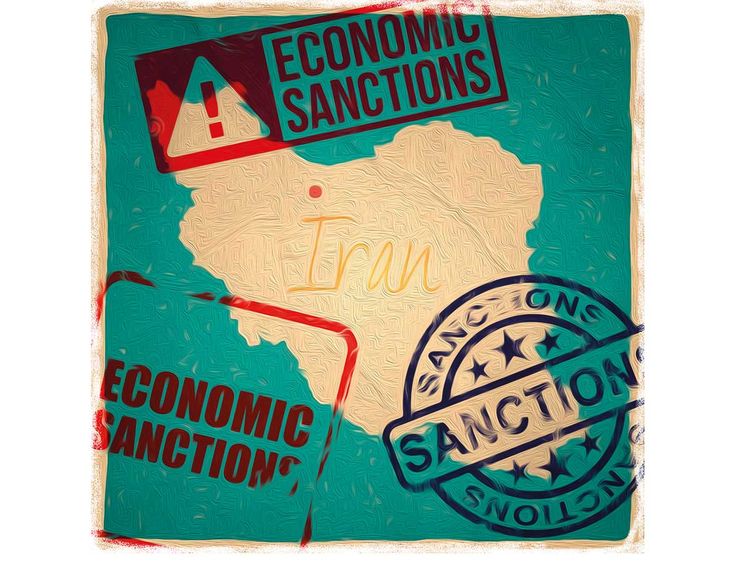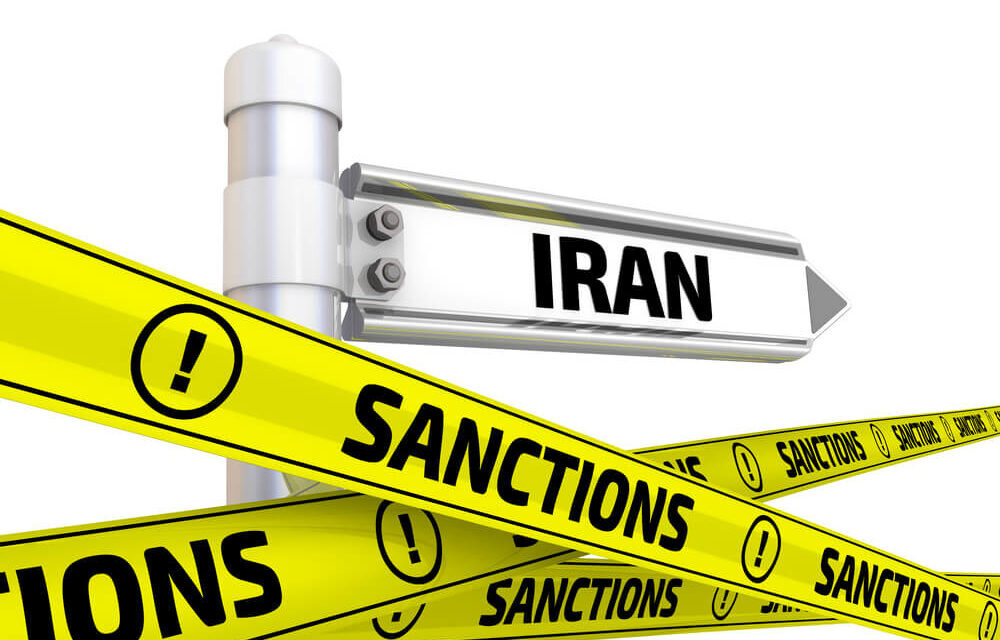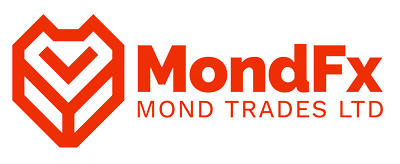The forex market is one of the largest and most dynamic financial markets in the world, where various international currencies are traded. Due to the global nature of this market, traders from all over the world, including Iran, can operate in it. But the economic sanctions imposed on Iran by Western countries, especially the United States, have created many challenges for Iranian traders. These sanctions include restrictions on access to international financial systems and the use of global banking services, which directly and indirectly affect economic and financial activities.
The importance of this issue is that for many Iranians, the forex market is not only an investment opportunity but also an important source of income. In this article, we will analyze the impact of these sanctions on Iranian Forex traders in order to provide a better understanding of the challenges and opportunities in this field.
This article seeks to answer the following key questions:
- How do economic sanctions affect the activities of Iranian traders in the forex market?
- What restrictions and obstacles are there for Iranian traders as a result of sanctions?
- What solutions are there to deal with these limitations and continue to operate in the forex market?
- Have sanctions had a significant impact on the number and activity of Iranian users in the forex market?
- What have been the experiences and reactions of forex brokers to sanctions?
The overall effect of sanctions on Iran’s economy
Direct and indirect effects of sanctions on the economy
The economic sanctions imposed on Iran have had extensive effects on the country’s economy. Direct effects include restrictions on international trade, reduced oil and gas exports, and limited access to global financial and banking systems. These sanctions have reduced the country’s foreign exchange earnings and increased import costs, which in turn has led to inflation and devaluation of the national currency.
The indirect effects of sanctions include the reduction of foreign investment, the withdrawal of international companies from Iran, and the reduction of production and employment in various economic sectors. These factors, in total, have led to a decrease in economic growth and an increase in the unemployment rate. In addition, sanctions have increased the cost of production and import of basic goods, which has put more pressure on people’s daily lives.
Different economic sectors affected by sanctions
Oil and gas industry: Sanctions have directly affected Iran’s oil and gas exports. The decrease in export capacity and the limitation in access to advanced technologies have caused a decrease in production and foreign exchange earnings.
Banking and financial industry: Banking and financial sanctions have limited Iran’s access to international financial systems. These restrictions have increased the cost of financial transfers and reduced the ability of banks to provide international services.
International trade: Sanctions have limited Iran’s international trade. Many foreign companies have left the Iranian market and Iranian companies are also facing serious problems in import and export.
Manufacturing industries: The reduction in the import of raw materials and equipment has reduced production in many industries. The increase in production costs has also reduced the competitiveness of Iranian products in domestic and foreign markets.
Service Sector: Sanctions have had a negative impact on the provision of international services such as transportation, insurance and financial services. These restrictions have reduced efficiency and increased service costs.
All in all, the sanctions have put a lot of pressure on Iran’s economy and have affected various economic sectors. This article will take a closer look at these effects on the forex market and Iranian traders in order to provide appropriate solutions to deal with these challenges.

Forex market and Iranian traders
Introducing the forex market
The Forex market (Foreign Exchange Market) is the largest and most dynamic financial market in the world, where different international currencies are traded. This market operates 24 hours a day, five days a week, and its daily trading volume reaches trillions of dollars. Unlike stock markets, forex is a decentralized market; This means that transactions are done through computer networks between traders all over the world and there is no center for all transactions.
The forex market is very attractive due to high liquidity, the possibility of using leverage and numerous opportunities to earn profit. Traders can profit from the price fluctuations of currency pairs and due to economic and political influences on currencies, this market is very active and dynamic.
How Iranian traders enter the forex market
Entering the forex market for Iranian traders, like other traders around the world, is done through forex brokers. Brokers are companies that act as intermediaries between traders and the forex market and provide various trading services, trading platforms and financial instruments.
Iranian traders go through the following steps to enter the forex market:
Choosing a broker: Traders should choose a reliable and appropriate broker that provides services to Iranian users.
Account Opening: After selecting a broker, traders must open a trading account on the broker’s website. This process includes providing personal and financial information, verifying identity and accepting the broker’s terms and conditions.
Capital deposit: Traders must deposit their initial capital to the broker’s account. This process is usually done through various methods such as bank transfer, credit cards, or crypto currencies.
Training and practice: Many brokers offer demo (trial) accounts where traders can practice and gain experience without financial risk.
Start trading: After depositing capital and gaining enough experience, traders can start real trading in the forex market.
Choosing the right broker is one of the most important decisions for every trader. In this process, several key factors should be considered. First of all, the credibility and legal licenses of the broker should be checked. A reputable broker must operate under the supervision of reputable financial organizations.
Trading costs, including commissions and spreads, are another important factor to consider. The right broker should offer competitive and transparent fees. The trading platform is also very important. A user-friendly, stable platform equipped with advanced analytical tools can significantly improve the trading experience.
Among the many available options, MondFX is known as one of the best brokers for Iranian traders. This broker has been able to find a special place among Iranian traders by providing services tailored to the specific needs of Iranian traders, including Persian language support and suitable payment methods.
MondFX provides a wide range of trading tools to its users. Also, this broker helps traders improve their skills by providing tutorials and educational resources in Persian. Considering the specific conditions of Iranian traders and existing restrictions, MondFX can be a suitable and reliable option to enter the world of online trading.
The impact of sanctions on forex activities in Iran
Restrictions and obstacles created by sanctions
Economic sanctions against Iran have created many restrictions and obstacles for Iranian traders in the forex market. These restrictions include the following:
Banking and financial restrictions: One of the biggest challenges is the lack of access to international banking systems. This causes serious problems in depositing and withdrawing capital.
Restrictions of brokers: Some international brokers refuse to provide services to Iranian users due to sanctions.
Lack of access to financial instruments: Sanctions have made Iranian traders unable to access some international financial instruments and services.
Problems in financial transfers: Transferring capital abroad and vice versa has become very difficult and costly due to banking and financial restrictions.
The impact of sanctions on forex brokers and their services
Also, sanctions have had different effects on forex brokers. Some brokers refuse to provide services to Iranian users due to compliance with international sanctions laws. These brokers are usually based in countries that have stricter sanctions against Iran, such as the United States.
On the other hand, some other brokers operating in countries with less strict laws continue to provide services to Iranian users. These brokers offer solutions to deal with limitations; Such as providing alternative methods for depositing and withdrawing funds, using crypto currencies and providing special support for Iranian users.
In general, sanctions have caused Iranian traders to face more challenges in entering and operating in the forex market. These challenges require specific solutions and strategies in order to reduce the negative effects of sanctions and continue to operate in this potential market. In the rest of the article, we will take a closer look at the solutions to deal with these restrictions so that Iranian traders can operate with more knowledge in the forex market.

Methods of dealing with sanctions in forex
Using alternative methods for depositing and withdrawing
Economic sanctions have caused serious restrictions on direct access to international banking systems for Iranian traders. For this reason, it is necessary to use alternative methods for depositing and withdrawing capital. Some of these methods are:
Electronic wallets: services such as WebMoney, Perfect Money and Skrill allow Iranian users to deposit and withdraw money. Because these wallets are not directly dependent on international banking systems, they are a good option for bypassing sanctions.
Crypto currencies: The use of crypto currencies such as Bitcoin, Ethereum and Tether as payment and withdrawal methods are becoming more and more popular. Due to their decentralized nature and lack of dependence on traditional banking systems, these currencies are a powerful tool to deal with sanctions.
Local Exchanges: Some traders use the services of local exchanges for currency conversion and money transfers. These exchanges can act as intermediaries and facilitate financial transfers.
The role of exchanges and crypto currencies
Exchanges and crypto currencies play a vital role in dealing with sanctions and facilitating the financial activities of Iranian traders. Local exchanges can act as a bridge between traders and international markets. These exchanges facilitate financial transfers by converting Rials into common international currencies and vice versa.
Crypto currencies are also a suitable tool to deal with sanctions due to their special features, including decentralization and the ability to transfer quickly and at low cost. Using crypto currencies, traders can easily deposit and withdraw capital without depending on banks and traditional financial systems. These currencies also enable the transfer of capital abroad, which is vital in the context of sanctions.
The percentage of Iranian users in the forex market
Statistics and figures of Iranian users in Forex
The estimate of the number of Iranian users in the forex market is not accurate due to information limitations and lack of transparency, but unofficial surveys and internal statistics show that a significant number of Iranians are active in this market. These users include professionals as well as retail traders looking for investment opportunities and making money from currency fluctuations.
Changes in the number of users after the imposition of sanctions
The imposition of sanctions has had different effects on the number of Iranian users in the forex market. On the one hand, some traders have stopped working in this market due to the restrictions and problems in depositing and withdrawing capital. On the other hand, some others have continued to operate using alternative methods and new tools.
In general, the sanctions reduced the number of active users in the short term, but as time passed and traders adapted to the new conditions, the number increased again. The use of crypto currencies and the services of local exchanges have helped traders to cope with sanctions and continue to operate.

Investigating traders’ concerns
Traders’ main concerns about sanctions
Iranian traders have several concerns in the face of sanctions, which include the following:
Deposit and withdrawal problems: The main concern of many traders is the problems related to transferring capital to brokers and vice versa.
Capital security: Traders are concerned about the security of their capital in foreign brokers, especially when some brokers follow sanctions laws and may block the accounts of Iranians.
Access to services: Limitation in access to international financial instruments and services is another important concern.
Economic stability: Unstable economic conditions and severe currency fluctuations within the country also affect the activities of traders.
Answering these concerns and clarifying ambiguities
To answer these concerns and clear up the ambiguities, traders can use the following solutions:
Use of reliable brokers: Choosing reliable brokers such as MondFX, which continue to provide services to Iranian users and have a good history and clear rules, can reduce concerns.
Using crypto currencies: Using crypto currencies for depositing and withdrawing capital can solve banking and financial problems and provide more security.
Consulting with experts: Consulting with financial and legal experts can help traders to find appropriate solutions to deal with sanctions.
By using these solutions, Iranian traders can operate more confidently in the forex market and minimize the negative effects of sanctions.
Experiences of forex brokers
Experiences of different brokers in facing sanctions:
Forex brokers have continued to operate despite severe sanctions against Iran in the past years. Many of them have been able to find solutions to continue providing services to Iranian users. Some brokers have moved their offices to neighboring countries to stay away from the restrictions of sanctions. Also, the use of intermediaries and agencies in other countries has been one of the brokers’ methods to maintain relations with Iranian customers.
Brokers that serve Iranian users:
Despite the sanctions, there are still reliable brokers that serve Iranian users. Some of these brokers include MondFX, FXTM, RoboForex and Vitaverse. These brokers are usually registered in countries that are not subject to US sanctions and can serve Iranian customers without worry. Of course, some large American and European brokers refuse to provide services to Iranians due to legal risks.
The impact of sanctions on deposits and withdrawals in forex
How to make deposits and withdrawals under sanctions:
Despite banking sanctions, it is still possible for Iranian users to deposit and withdraw in forex. This process is usually done through exchanges and financial intermediaries and not directly through the banking system. Many brokers cooperate with reliable exchanges to provide the possibility of money transfer for Iranian customers. In this method, the user deposits the desired amount to the exchange account in Iran and the exchange transfers the equivalent amount to the broker’s account abroad.
Alternative and effective methods for doing transactions:
One of the alternative methods that has become very popular in recent years is the use of crypto currencies such as Bitcoin and Tether. Many brokers have provided the possibility of depositing and withdrawing with crypto currencies, which is a fast and low-cost way to transfer money. Also, using electronic wallets and online payment systems is another way to bypass banking restrictions. Some brokers have also set up their own internal payment systems to reduce dependence on international banking systems.
Conclusion:
Economic sanctions against Iran have created significant challenges for Iranian traders in the forex market. These challenges include banking restrictions, problems in depositing and withdrawing capital, and reducing access to some brokers and international financial services. However, Iranian traders have been able to overcome these obstacles to some extent by using alternative solutions such as crypto currencies, electronic wallets and cooperation with local exchanges. Also, some brokers continue to serve Iranian users by providing innovative methods for payment and money transfer. Although sanctions have created restrictions, the forex market still offers significant opportunities for Iranian traders who are aware and cautious.
Frequently asked questions:
Is trading in the forex market legal for Iranians?
Trading in the forex market is not legally prohibited according to Iran’s internal laws. But due to the sanctions, traders must act carefully and be aware of international laws and regulations.
How to invest in the forex market despite sanctions?
It is possible to use reliable brokers that provide services to Iranians and use alternative methods for depositing and withdrawing such as crypto currencies and local exchanges. Also, using electronic wallets can be useful.
Is the capital of Iranian traders safe in foreign brokers?
Capital security depends on choosing a reliable broker and following security principles. The use of regulated and licensed brokers, as well as the distribution of capital between several brokers, can reduce risk.
Can Iranian bank cards be used for depositing to a forex account?
Direct use of Iranian bank cards is usually not possible due to sanctions. But alternative methods such as online exchanges, crypto currencies or electronic wallets can be used.
What effect have sanctions had on the profitability of forex trading for Iranians?
Sanctions have increased transaction costs and limited access to some instruments. However, with the right strategies and risk management, it is still possible to make a profit in this market.



